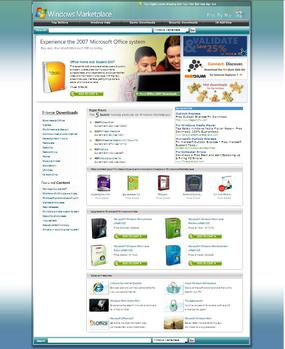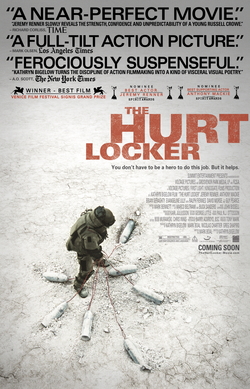A digital locker is an online file storage service.
Digital locker may also refer to:
- Windows Marketplace, Digital Locker was a component of a Microsoft digital store
- Digital Locker, a digital locker service in India
A digital locker is an online file storage service.
Digital locker may also refer to:

The Next-Generation Secure Computing Base is a software architecture designed by Microsoft which aimed to provide users of the Windows operating system with better privacy, security, and system integrity. NGSCB was the result of years of research and development within Microsoft to create a secure computing solution that equaled the security of closed platforms such as set-top boxes while simultaneously preserving the backward compatibility, flexibility, and openness of the Windows operating system. Microsoft's primary stated objective with NGSCB was to "protect software from software."

Ransomware is a type of malware from cryptovirology that threatens to publish the victim's personal data or permanently block access to it unless a ransom is paid off. While some simple ransomware may lock the system without damaging any files, more advanced malware uses a technique called cryptoviral extortion. It encrypts the victim's files, making them inaccessible, and demands a ransom payment to decrypt them. In a properly implemented cryptoviral extortion attack, recovering the files without the decryption key is an intractable problem – and difficult to trace digital currencies such as paysafecard or Bitcoin and other cryptocurrencies are used for the ransoms, making tracing and prosecuting the perpetrators difficult.

Windows Marketplace was a Microsoft platform for the delivery of software electronically that was secured by use of Windows Live ID. The digital locker platform was composed of four major components:

The Georgia State University Sports Arena is an indoor arena located in Atlanta, Georgia, United States. It was the home of the basketball teams of Georgia State University from 1973 until 2022 and hosted the badminton competition of the 1996 Summer Olympics. It is the home of Georgia State's women's volleyball team.
Windows Ultimate Extras were optional features offered by Microsoft to users of the Ultimate edition of Windows Vista and are accessible via Windows Update. Ultimate Extras replaced the market role of Microsoft Plus!, a product sold for prior consumer releases of Microsoft Windows. According to Microsoft's Barry Goffe, the company's goal with Ultimate Extras was to delight customers who purchased the Ultimate edition of Windows Vista, the most expensive retail edition of the operating system.

Vudu is an American digital video store and streaming service owned by Fandango Media, a joint-venture between NBCUniversal and Warner Bros. Discovery. The company offers transactional video on demand rentals and digital purchases of films, as well as integration with digital locker services for streaming digital copies of films purchased as home video at retail.

A locker is a small, usually narrow storage compartment. They are commonly found in dedicated cabinets, very often in large numbers, in various public places such as locker rooms, workplaces, schools, transport hubs and the like. They vary in size, purpose, construction, and security.

HP-Hrvatska pošta d.d., founded in 1999, is a joint stock company owned by the Republic of Croatia that performs postal and payment transactions. It is the national postal operator of the Republic of Croatia.

The Hurt Locker is a 2008 American war thriller film directed by Kathryn Bigelow and written by Mark Boal. It stars Jeremy Renner, Anthony Mackie, Brian Geraghty, Christian Camargo, Ralph Fiennes, David Morse, and Guy Pearce. The film follows an Iraq War Explosive Ordnance Disposal team who are targeted by insurgents and shows their psychological reactions to the stress of combat. Boal drew on his experience during embedded access to write the screenplay.
A digital locker or cyberlocker is an online file or digital media storage service. Files stored include music, videos, movies, games and other media. The term was used by Microsoft as a part of its Windows Marketplace in 2004. By storing files in a digital locker, users are able to access them anywhere they can find internet connections. Most digital locker services require a user to register. Prices range from free to paid, divided according to the complications and strength of the lock.
The Digital Entertainment Content Ecosystem was a consortium of major film studios, consumer electronics manufacturers and retailers, networking hardware vendors, systems integrators, and Digital Rights Management (DRM) vendors listed below. The consortium was announced in September 2008 by its president, Mitch Singer, who was also the chief technology officer (CTO) of Sony Pictures Entertainment at the time. DECE was chartered to develop a set of standards for the digital distribution of premium Hollywood content. The consortium created a set of rules and a back-end system for the management of those rules that enabled consumers to share purchased digital content among a domain of registered consumer electronics devices.

Movies Anywhere(MA) is a cloud-based digital rights locker and over-the-top streaming platform that allows users to stream and download purchased films, including digital copies redeemed from codes found in home video releases as well as digital purchases from participating services. Movies Anywhere is operated by The Walt Disney Company. The platform provides content from Walt Disney Studios, Sony Pictures, Universal Pictures, and Warner Bros. The system utilizes an internal platform known as KeyChest, which synchronizes content licenses from digital distribution platforms linked to a central user account.
UltraViolet was a cloud-based digital rights locker for films and television programs that allowed consumers to store proofs-of-purchase of licensed content in an account to enable playback on different devices using multiple applications from several different streaming services. UltraViolet also allowed users to share access to their library with up to five additional people. UltraViolet was deployed by the Digital Entertainment Content Ecosystem (DECE), an alliance of 85 companies that includes film studios, retailers, consumer electronics manufacturers, cable television companies, internet service providers (ISPs), internet hosting vendors, and other internet systems and security vendors, with the notable exceptions of Walt Disney Studios, Google, Amazon and Apple.
Electronic sell-through (EST) is a method of media distribution whereby consumers pay a one-time fee to download a media file for storage on a hard drive. Although EST is often described as a transaction that grants content "ownership" to the consumer, the content may become unusable after a certain period and may not be viewable using competing platforms. EST is used by a wide array of digital media products, including movies, television, music, games, and mobile applications. The term is sometimes used interchangeably with download to own (DTO).

"Who You Are" is a song by English singer and songwriter Jessie J, released as the sixth overall single from her debut studio album of the same name. The song was written by Jessie J, Toby Gad, and Shelly Peiken, while the production was handled by Gad. The single was released via digital download on November 13, 2011. The song's lyrics address the importance of staying true to one's identity. According to Cornish, she wrote the song after a three-month lonely trip. The song received very positive reviews from music critics, who complimented her strong vocals in the song and considered a highlight on the album. The track reached the top ten in the UK.
This is a comparison of online music storage services, Internet services that allow uploads of personally owned or licensed music to the cloud for listening on multiple devices.

The CryptoLocker ransomware attack was a cyberattack using the CryptoLocker ransomware that occurred from 5 September 2013 to late May 2014. The attack utilized a trojan that targeted computers running Microsoft Windows, and was believed to have first been posted to the Internet on 5 September 2013. It propagated via infected email attachments, and via an existing Gameover ZeuS botnet. When activated, the malware encrypted certain types of files stored on local and mounted network drives using RSA public-key cryptography, with the private key stored only on the malware's control servers. The malware then displayed a message which offered to decrypt the data if a payment was made by a stated deadline, and it threatened to delete the private key if the deadline passes. If the deadline was not met, the malware offered to decrypt data via an online service provided by the malware's operators, for a significantly higher price in bitcoin. There was no guarantee that payment would release the encrypted content.

Digital India is a campaign launched by the Government of India to ensure that the Government's services are made available to citizens electronically through improved online infrastructure and by increasing Internet connectivity or making the country digitally empowered in the field of technology. The initiative includes plans to connect rural areas with high-speed internet networks. It consists of three core components: the development of secure and stable digital infrastructure, delivering government services digitally, and universal digital literacy.
DigiLocker is a digitization service provided by the Indian Ministry of Electronics and Information Technology (MeitY) under its Digital India initiative. DigiLocker allows access to digital versions of various documents including drivers licenses, vehicle registration certificates and academic mark sheets. It also provides 1 GB storage space to each account to upload scanned copies of legacy documents.

Parcel locker is an automated postal box that allows users for a self-service collection of parcels and oversize letters as well as the dispatch of parcels.